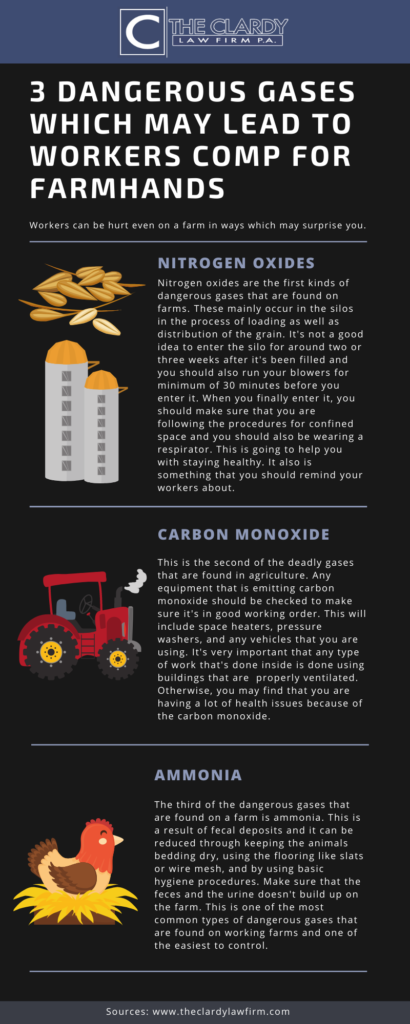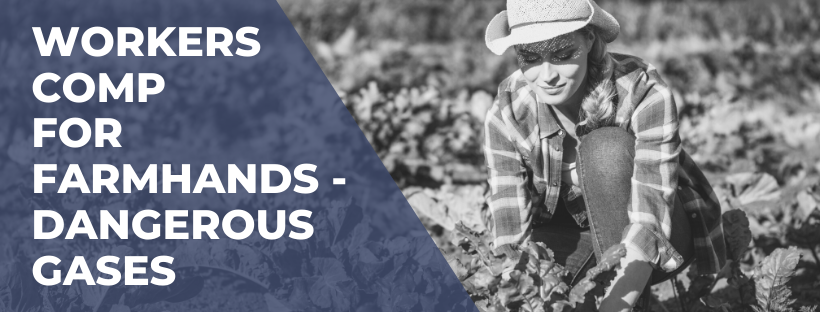When it comes to workers comp for farmhands, many people think of things like warehouse jobs where someone hurts his/her back or slips and falls. But workers can be hurt even on a farm in ways which may surprise you. Below are three dangerous gases which can cause injuries and lead to workers comp for farmhands.

Nitrogen oxides
Nitrogen oxides are the first kinds of dangerous gases that are found on farms. These mainly occur in the silos in the process of loading as well as distribution of the grain. It’s not a good idea to enter the silo for around two or three weeks after it’s been filled and you should also run your blowers for minimum of 30 minutes before you enter it. When you finally enter it, you should make sure that you are following the procedures for confined space and you should also be wearing a respirator. This is going to help you with staying healthy. It also is something that you should remind your workers about.
Carbon monoxide
This is the second of the deadly gases that are found in agriculture. Any equipment that is emitting carbon monoxide should be checked to make sure it’s in good working order. This will include space heaters, pressure washers, and any vehicles that you are using. It’s very important that any type of work that’s done inside is done using buildings that are properly ventilated. Otherwise, you may find that you are having a lot of health issues because of the carbon monoxide. Keep in mind that carbon monoxide can kill, so you want to make sure that you are properly ventilating any buildings in which vehicles are running so that you don’t injure your workers.
Ammonia
The third of the dangerous gases that are found on a farm is ammonia. This is a result of fecal deposits and it can be reduced through keeping the animals bedding dry, using the flooring like slats or wire mesh, and by using basic hygiene procedures. Make sure that the feces and the urine doesn’t build up on the farm. This is one of the most common types of dangerous gases that are found on working farms and one of the easiest to control.
If you have been injured through a dangerous gas on the job, or in another way, contact us. We will do our best to help you get compensated for your injuries.





